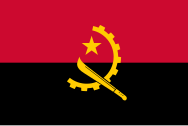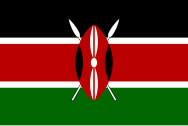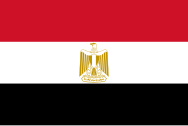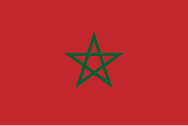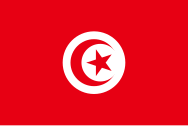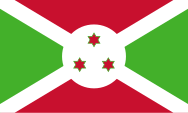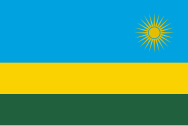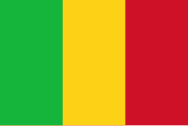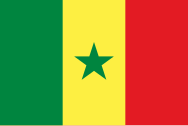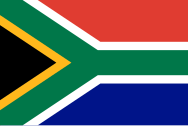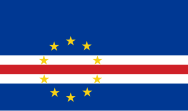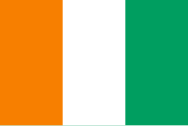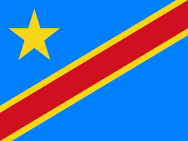- Libya - History
- Libya - Kingdoms
- Libya - Royal Archives
- Libya - Treaties
- Libya - Economy
- Libya - Technology
- Libya - Diaspora
- Libya - Culture
- Libya - Migration
- Libya - Museums
- Libya - Architecture
- Libya - Education
- Libya - Geneology
- Libya - Music
- Libya - Art
- Libya - Dance
- Libya - General
- Libya - People
Libya

Country Flag
Libya, officially the State of Libya, is a country in the Maghreb region of North Africa. It borders the Mediterranean Sea to the north, Egypt to the east, Sudan to the southeast, Chad to the south, Niger to the southwest, Algeria to the west, and Tunisia to the northwest, as well as maritime borders with Greece, Italy and Malta to the north. Libya comprises three historical regions: Tripolitania, Fezzan, and Cyrenaica. With an area of almost 1.8 million km2 (700,000 sq mi), it is the fourth-largest country in Africa and the Arab world, and the 16th-largest in the world. Libya claims 32,000 square kilometres of southeastern Algeria, south of the Libyan town of Ghat. The country's official religion is Islam, with 96.6% of the Libyan population being Sunni Muslims. The official language of Libya is Arabic, with vernacular Libyan Arabic being spoken most widely. The majority of Libya's population is Arab. The largest city and capital, Tripoli, is located in northwestern Libya and contains over a million of Libya's seven million people.
Libya has been inhabited by Berbers since the late Bronze Age as descendants from Iberomaurusian and Capsian cultures. In classical antiquity, the Phoenicians established city-states and trading posts in western Libya, while several Greek cities were established in the East. Parts of Libya were variously ruled by Carthaginians, Numidians, Persians, and Greeks before the entire region becoming a part of the Roman Empire. Libya was an early centre of Christianity. After the fall of the Western Roman Empire, the area of Libya was mostly occupied by the Vandals until the 7th century when invasions brought Islam to the region. From then on, centuries of Arab migration to the Maghreb shifted the demographic scope of Libya in favour of Arabs. In the 16th century, the Spanish Empire and the Knights of St John occupied Tripoli until Ottoman rule began in 1551. Libya was involved in the Barbary Wars of the 18th and 19th centuries. Ottoman rule continued until the Italo-Turkish War, which resulted in the Italian occupation of Libya and the establishment of two colonies, Italian Tripolitania and Italian Cyrenaica (1911–1934), later unified in the Italian Libya colony from 1934 to 1943.
During World War II, Libya was an area of warfare in the North African Campaign. The Italian population then went into decline. Libya became independent as a kingdom in 1951. A bloodless military coup in 1969, initiated by a coalition led by Colonel Muammar Gaddafi, overthrew King Idris I and created a republic. Gaddafi was often described by critics as a dictator, and was one of the world's longest serving non-royal leaders, ruling for 42 years. He ruled until being overthrown and killed during the 2011 Libyan Civil War, which was part of the wider Arab Spring, with authority transferred to the National Transitional Council then to the elected General National Congress. Since 2011, Libya has been involved in a political and humanitarian crisis, and by 2014, two rival authorities claimed to govern Libya, which led to a second civil war, with parts of Libya split between the Tobruk and Tripoli-based governments as well as various tribal and Islamist militias. The two main warring sides signed a permanent ceasefire in 2020, and a unity government took authority to plan for democratic elections, though political rivalries continue to delay this. In March 2022, the House of Representatives ceased recognising the Government of National Unity and proclaimed an alternative government, the Government of National Stability (GNS). Both governments have been functioning simultaneously since then, which has led to dual power in Libya. The international community continues to recognise the unity government as the legitimate government of the country.
Libya is a developing country ranking 92nd by HDI, the highest score in mainland Africa, and has the 10th-largest proven oil reserves in the world. Libya is a member of the United Nations, the Non-Aligned Movement, the African Union, the Arab League, the Organisation of Islamic Cooperation, and OPEC.


